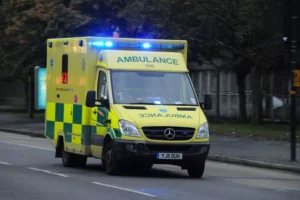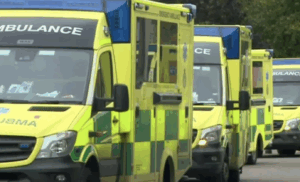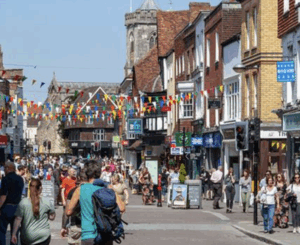As hopes of finding more survivors dwindle in Libya, aid organisations have issued urgent warnings about the growing risk of disease outbreaks that could further exacerbate the humanitarian crisis in Libya following a devastating flood. On Sunday, floodwaters engulfed the port city of Derna, washing away thousands of people and homes after two upstream dams gave way under the relentless onslaught of torrential rains triggered by a hurricane-strength storm.
Conflicting reports have emerged regarding the death toll, with officials in the eastern part of the divided nation providing varying estimates. Some reports mention at least 3,840 people dead.
In Al-Bayda, located 100 kilometres (60 miles) west of Derna, local residents have initiated cleanup efforts, tirelessly working to clear roads and homes of the thick layers of mud left behind by the catastrophic deluge.
Aid organisations such as Islamic Relief and Doctors Without Borders (MSF) are sounding the alarm about the impending threat of disease outbreaks and the formidable challenges in delivering aid to those in dire need. Islamic Relief has raised concerns about a “second humanitarian crisis” looming after the flood, highlighting the “growing risk of water-borne diseases and shortages of food, shelter, and medicine.”
However, it’s important to note that the International Federation of Red Cross and Red Crescent Societies (IFRC) and the World Health Organisation (WHO) emphasised that contrary to common belief, the bodies of disaster victims rarely pose a health threat.
An AFP journalist in Derna painted a grim picture, describing central neighbourhoods on both sides of the river, which typically dries up at this time of year, as looking as if a massive steamroller had swept through. Trees and buildings were uprooted, and vehicles were hurled onto the port’s breakwaters.
The United Nations launched an appeal for over $71 million to assist hundreds of thousands in need, acknowledging that the “extent of the problem” remains unclear. UN aid chief Martin Griffiths called for coordination between Libya’s two rival administrations—the UN-backed government in Tripoli and the one based in the disaster-hit east.
Despite the scale of devastation, acts of solidarity have emerged. Volunteers in Tripoli gathered aid for flood victims in the east, demonstrating unity in the face of tragedy.
Teams from the Libyan Red Crescent continue to search for survivors and clear bodies from the rubble in the hardest-hit areas of Derna. Other teams are striving to deliver much-needed aid to families in the eastern part of the city, which, although spared the worst of the flooding, remains cut off by road.
The International Organisation for Migration reported that “over 38,640” people have been left homeless in eastern Libya, with 30,000 of them in Derna alone, underscoring the magnitude of the ongoing crisis.


































